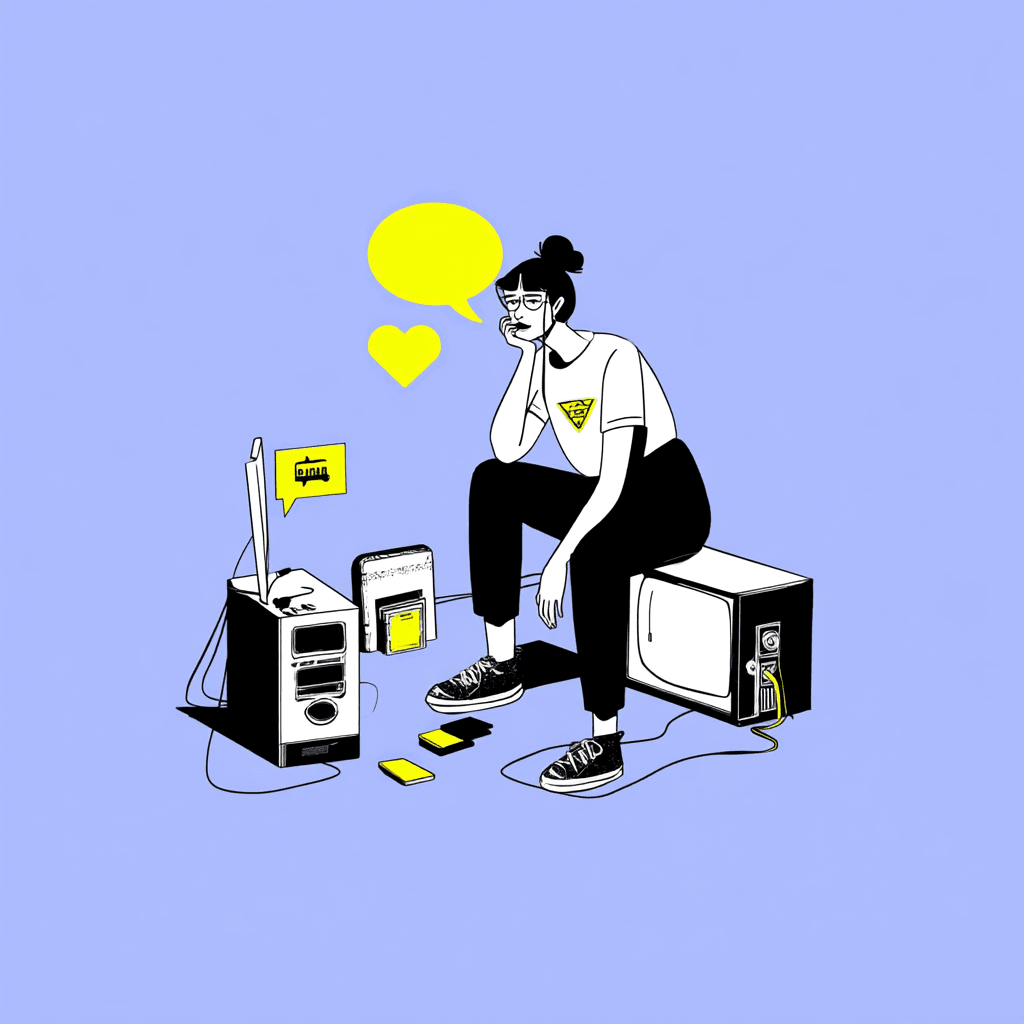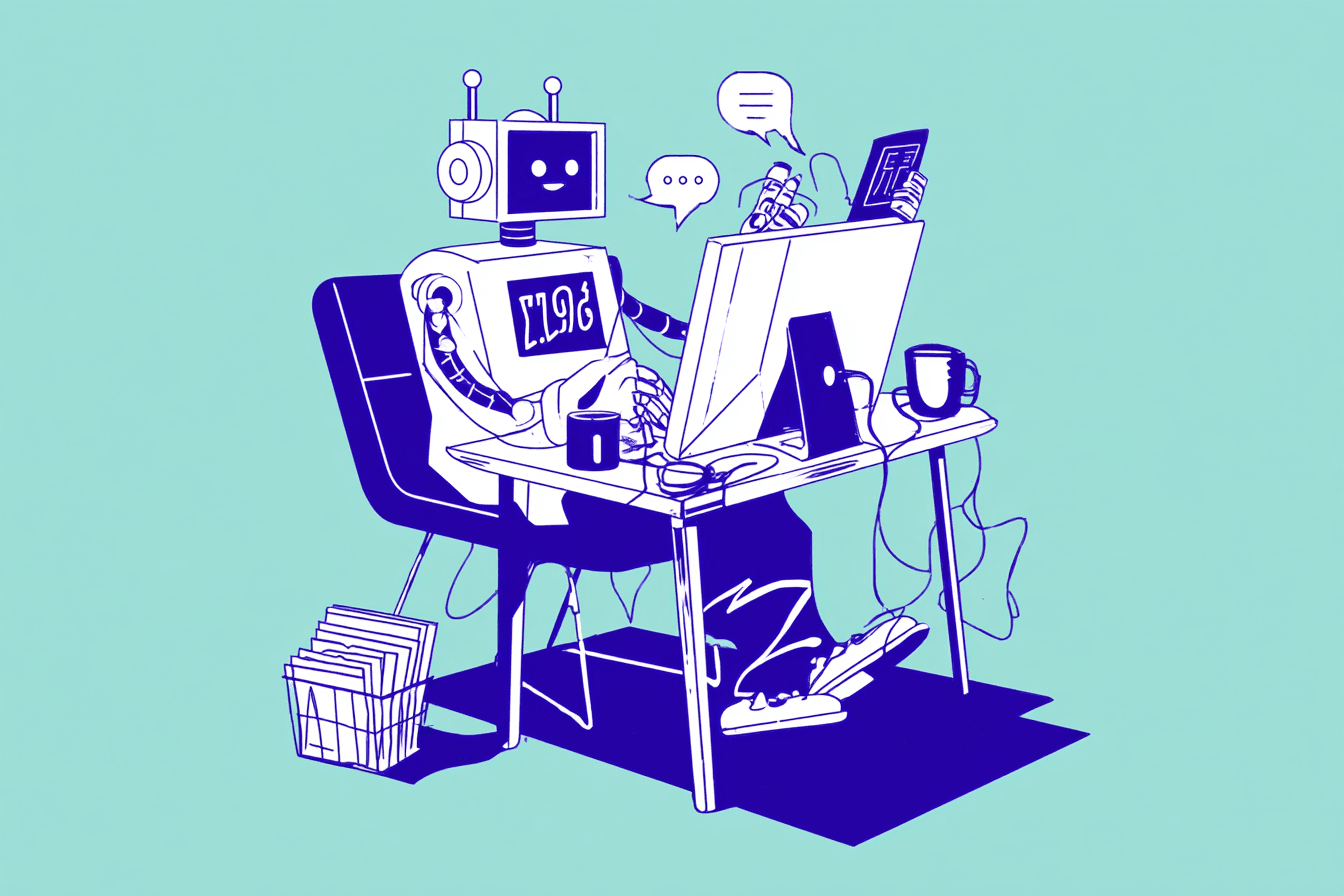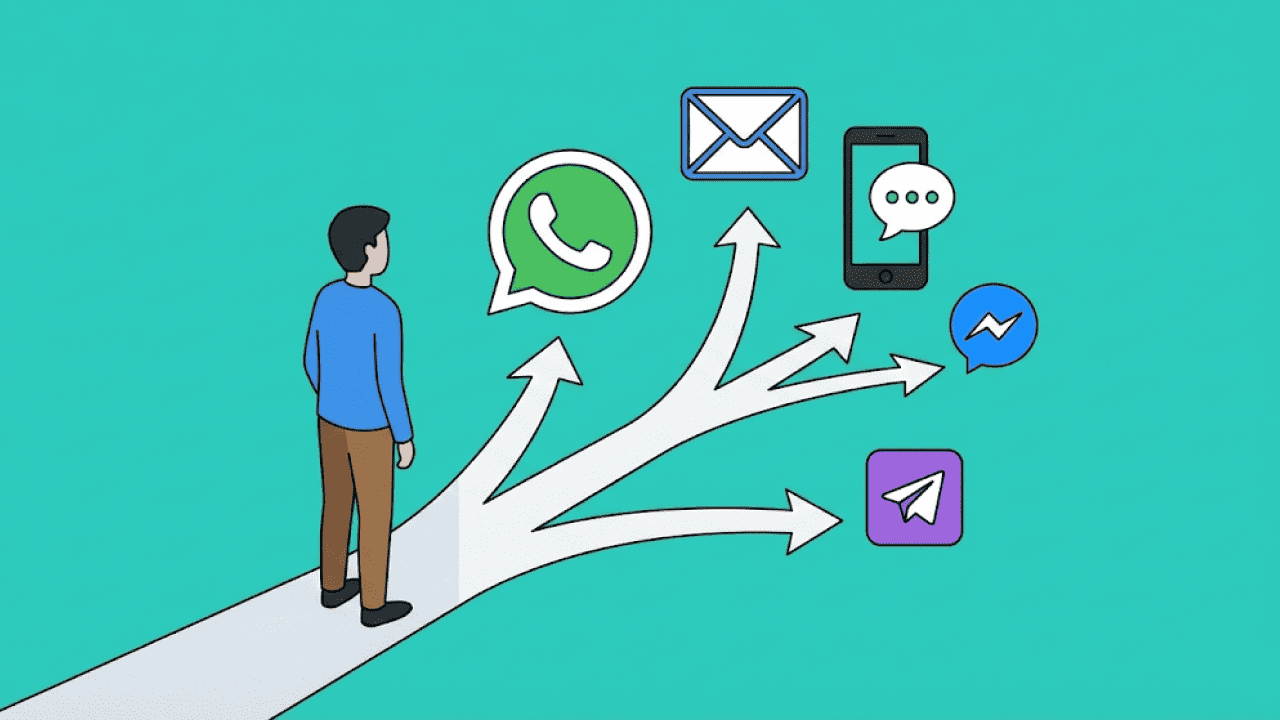The Truth About CX Software in 2026
Forget NPS scores. Forget survey spam. 7 out of 10 customers ignore your feedback emails anyway.
In 2026, the winners aren't those who collect the most data points. It's those who solve problems before customers even notice them. That's the difference between a 2015 ticketing system and modern customer experience software.
The market has fundamentally shifted. The buzzwords are "Agentic Orchestration" and "Unified Intelligence." What that actually means: AI agents that don't just ask "How can I help?" but actually help. They know your Shopify data, process returns, and communicate delivery status – without human intervention.
The hard numbers: Companies worldwide lose an estimated $3.7 trillion annually due to poor customer experiences (Source: Qualtrics/Nextiva Analysis). At the same time, 79% of executives now see CX as a revenue driver – not a support cost center. That's the shift defining 2026.
Comparison Table: 10 CX Software Solutions at a Glance
| Provider | Category | Strengths | Weaknesses | Ideal For |
|---|---|---|---|---|
| Salesforce Service Cloud | Enterprise | Deep CRM integration, Agentforce platform | Expensive, complex implementation | Enterprises with Salesforce stack |
| Zendesk | Enterprise | AI ready out-of-the-box, proven ticketing | Limited WhatsApp focus | Mid-market to Enterprise |
| Qualtrics XM | Enterprise/Analytics | Market leader in customer insights | Less operational, more research | Enterprises with analytics focus |
| Medallia | Enterprise | Real-time operational signals, Signal Capture | Complex, high entry barrier | Telcos, banks, large organizations |
| Sprinklr | Enterprise | Unified CXM, 30+ channels, social listening | Very complex and expensive | Global brands |
| Chatarmin (ArminCX) | E-Commerce | WhatsApp-first, Shopify/Klaviyo, GDPR | Focus on DACH region | D2C and e-commerce brands |
| Freshworks | E-Commerce/SMB | Good price-performance ratio | Less deep integrations | Startups and SMBs |
| HubSpot Service Hub | E-Commerce/SMB | Strong marketing ecosystem | Limited for complex cases | SMBs with HubSpot CRM |
| Gainsight | B2B SaaS | Best solution for Customer Success | Not suitable for B2C | B2B SaaS with churn issues |
| BSI CX | DACH/Regulated | Swiss provider, GDPR compliant | Smaller community | Regulated industries in DACH |
What Modern CX Software Must Deliver in 2026
Before you get lost in feature lists: Here are the four criteria that actually matter in 2026.
1. Agentic AI – AI That Solves Problems (Not Just Answers Them)
The difference between a chatbot and an AI agent? The chatbot answers FAQs. The agent solves your problem.
An AI agent has access to shop data, knows the order status, can initiate returns, and send invoices. No ticket. No wait time. No "Let me transfer you to a colleague."
The acceptance is there: 51% of consumers already prefer interacting with bots when it gets them immediate service (Source: Zendesk CX Trends). The shift is toward "Resolution Certainty" – the customer knows immediately that their problem will be solved because the AI has direct access to logistics and order data.
This isn't future talk. This is the standard CX software must meet in 2026.
2. Signal Capture – No More Manual Tags
Only 3 out of 10 customers participate in traditional surveys. The other 7 still communicate with you – via WhatsApp, email, chat, social media.
Modern CX software captures these signals automatically: click behavior, video feedback, voice analysis, sentiment from text. The term for 2026 is "Signal Capture" – not just collecting data, but recognizing intent and sentiment in real-time. Without anyone manually assigning tags.
3. Proactive Service – Solving Problems Before They Arise
Your package is delayed? The customer should hear it from you. Not from the carrier. And certainly not through an angry "Where's my order?" message.
Proactive customer communication as part of the customer experience means: automated status updates for delivery delays, predictive problem-solving, "Zero-Click Journeys." The customer doesn't have to take action – you solve their problem before they notice it.
4. Omnichannel Reality – No More Data Silos
Customers today use an average of nine different channels to interact with a single company (Source: Salesforce). Email, WhatsApp, Instagram, phone, live chat – often within a single customer journey.
Data silos are the biggest enemy of CX. A CX platform without true omnichannel integration? Worthless in e-commerce. The best tools connect directly with your stack: shop system, CRM, ERP, marketing automation. Data flows automatically. Your agents (human and AI) see everything they need.
5. Human-AI Hybrid – The Combination Wins
An important point often overlooked: AI doesn't replace humans. It augments them.
The gold standard in 2026 is the "Human-in-the-Loop" model: AI agents handle repetitive tasks (WISMO, returns, invoices), while human "Resolution Specialists" solve the complex cases. The combination of efficiency and empathy beats either alone.
The 10 Best CX Tools in 2026 – In Detail
Category 1: The Enterprise Giants (All-in-One & Research)
These tools are built for corporations. Powerful, comprehensive – but also complex and costly.
Salesforce Service Cloud / Agentforce
Salesforce has set the direction with "Agentforce": AI agents that connect front-line and back-office. The platform is powerful, the CRM integration unmatched.
Strengths: If you're already using Salesforce, there's hardly an alternative. The AI (Einstein) is trained on billions of service interactions.
Weaknesses: Implementation takes months. Costs are enterprise-level. For a Shopify shop with 50,000 customers, often overkill.
Verdict: The choice for enterprises with an existing Salesforce ecosystem.
Zendesk
Zendesk positions itself in 2026 as a "Resolution Platform." The focus is on fast time-to-value and AI that works immediately – without months of training.
Strengths: Proven, reliable, good omnichannel coverage. The AI is trained on real service data, not theoretical models.
Weaknesses: WhatsApp is one channel among many, not the focus. For messaging-based customer experience via WhatsApp, sometimes too generic.
Verdict: Solid choice for mid-market companies looking for an established provider.
Qualtrics XM
Qualtrics is the gold standard for customer insights and experience management. If you need scientific analysis, trend research, or want to evaluate large data volumes, there's no way around it.
Strengths: Deepest analytics capabilities on the market. "Location Experience Hubs" for companies with physical locations. Strong Signal Capture from video and voice feedback.
Weaknesses: Less operational. Qualtrics analyzes your CX – it doesn't execute it.
Verdict: For enterprises that want to understand what customers think. Not for those who need to react quickly.
Medallia
Medallia focuses on operational signals in real-time. The platform captures signals from all sources – video, audio, text, IoT – and processes them at scale.
Strengths: For telcos, banks, and large organizations with millions of customer contacts per day. Leading in Signal Capture and unstructured data.
Weaknesses: High entry barrier, enterprise pricing, long implementation.
Verdict: Not for mid-market. But a strong option for large enterprises with complex touchpoints.
Sprinklr
Sprinklr rose to "Leaders" status in the Gartner Magic Quadrant 2025 for Unified CXM. The platform manages over 30 digital channels and is particularly strong in social listening.
Strengths: If you operate globally and social media is a main channel, Sprinklr offers the most comprehensive coverage. Strong AI for sentiment analysis and crisis management.
Weaknesses: Very complex to implement. For mid-sized companies, often oversized and too expensive.
Verdict: The choice for international brands with high social media volume.
Category 2: The E-Commerce & Execution Specialists
These tools are designed for operational excellence in e-commerce. Fast implementation, deep shop integration, messaging focus.
Chatarmin (ArminCX)
Chatarmin specializes in DACH e-commerce. WhatsApp as the main channel, deep Shopify and WooCommerce integration, WISMO workflows (Where is my order?) directly in chat.
Positioning: Messaging-first Agentic AI for D2C brands that use WhatsApp as their primary customer channel.
Strengths:
Resolution Certainty: The AI has direct access to Shopify order data and logistics systems. The customer knows immediately that their problem will be solved – not "We have received your ticket."
Automation of returns, order status, and invoice requests directly in chat
Native Voice AI for phone support
100% GDPR compliant (critical for DACH)
Go-live in days, not months
Weaknesses: The focus on DACH and e-commerce means: Less international reach, fewer B2B features.
Case Study: Scalable customer experience at waterdrop® shows how D2C brands with high volume automate their customer communication – without compromising quality.
Verdict: The specialized choice for e-commerce in the DACH region. If you take WhatsApp seriously, you can hardly avoid Chatarmin.
Freshworks
Freshworks is the price-performance champion. Intuitive interface, quick start, fair costs.
Strengths: Ideal for teams that want to start fast. Good basic AI for routing and automation. Freshdesk is ready to use in days.
Weaknesses: Less deep shop integrations. Not sufficient for complex enterprise requirements.
Verdict: Good entry point for startups and SMBs that need a solid foundation.
HubSpot Service Hub
HubSpot scores with its marketing ecosystem. If you use HubSpot CRM, Service Hub is the logical extension.
Strengths: User-friendly, strong marketing automation connection. Good for teams that want to connect marketing and service.
Weaknesses: Limited for complex service requirements and high ticket volumes. WhatsApp integration not native.
Verdict: Ideal for SMBs already working in the HubSpot universe.
Category 3: The Niche Experts
These tools solve specific problems better than anyone else – but only those problems.
Gainsight
Gainsight is the standard for B2B Customer Success. Churn prevention, NLP-based health scores, proactive account management.
Strengths: If your customers are businesses (not consumers), Gainsight is the reference. The platform identifies churn risks before they become acute.
Weaknesses: Not suitable for B2C e-commerce. Focus is on account management, not messaging.
Verdict: The choice for B2B SaaS with complex customer relationships and high customer lifetime value.
BSI CX
BSI is a Swiss provider with a strong DACH focus. GDPR compliance and data security are core themes.
Strengths: Ideal for regulated industries (finance, insurance) in the DACH region. Swiss data hosting, highest compliance standards.
Weaknesses: Smaller international community, limited global support. Less agile than SaaS-native providers.
Verdict: The safe choice for companies with high compliance requirements in regulated industries.
Deep Dive: Why Agentic AI Makes the Difference in E-Commerce
Customers expect "Zero-Click Journeys" in 2026. They don't want to leave WhatsApp to track an order. They don't want to write an email to initiate a return. They don't want to call to request an invoice.
The solution: AI agents with access to shop data that solve problems autonomously.
An example: A customer writes on WhatsApp "Where's my package?" A traditional chatbot responds: "Please enter your order number." An AI agent recognizes the customer automatically, checks the delivery status, and responds: "Your package is on its way and will arrive tomorrow between 2 and 4 PM. Should I notify you when it's delivered?"
That's the comparison of dialog-oriented and traditional CX channels that determines customer loyalty in 2026.
Resolution Certainty vs. Ticket Hope
The crucial difference lies in the moment of interaction:
Old model: "We have received your request and will get back to you within 24 hours."
New model: "Your return is set up. You'll find the return label here. The refund will be processed within 3 days of receipt."
Chatarmin enables exactly that: product advice, purchase, and support – all in one thread. Controlled by AI agents with access to Shopify, Klaviyo, and your logistics data. Structured customer experience with personal approach shows how this works in practice.
Buyer's Guide: How to Choose the Right CX Software
5 Questions You Must Answer Before Deciding
1. Where is your data stored?
GDPR is not a nice-to-have. For companies in the DACH region, data security is a knockout criterion. Ask specifically: Where is data stored? Who has access? Is there a DPA?
2. How fast do you need to go live?
Salesforce implementation: 3-6 months. Chatarmin or Freshdesk: days to a few weeks. Time-to-value is a real factor. Especially when peak season is around the corner.
3. What's your main channel?
Phone and email? Zendesk or Genesys. WhatsApp and chat? Chatarmin. Everything equally? Check omnichannel capabilities carefully – often channels are only "integrated" on paper.
4. How deep does the shop integration need to be?
A Shopify shop needs different integrations than a B2B company with SAP. Check: Are there native integrations or just Zapier workarounds? Does order data flow in real-time?
5. What does bad CX really cost you?
Don't just calculate license costs. Calculate: How many tickets does your team resolve per day? What does a ticket cost? How much revenue do you lose through slow response times? Automated customer experience for support relief shows the concrete ROI.
Checklist for Your Evaluation
Data sovereignty: Where is the data? GDPR compliant?
Time-to-value: How long until go-live?
Omnichannel: Are all channels truly connected?
Integration: Native connection to your stack?
AI capabilities: Real Agentic AI or just keyword bots?
Human-AI balance: How well does the tool support your human agents?
Scaling: Does the tool grow with you?
Support: Local language support available?
Conclusion: CX Software Is No Longer a Ticketing System
To win in e-commerce in 2026, you need more than a tool for managing customer inquiries. You need a platform that connects sales and service. That solves problems before customers notice them. That knows and uses your shop data.
The choice depends on your use case:
Enterprise with global footprint: Salesforce, Sprinklr, or Medallia
Mid-market with proven solution: Zendesk or Qualtrics
E-commerce in DACH with WhatsApp focus: Chatarmin
B2B SaaS with churn problem: Gainsight
Startups with small budget: Freshworks or HubSpot
For D2C and e-commerce brands in the DACH region, Chatarmin is the specialized choice. Not because we claim it – but because premium customer experience in the premium segment and holistic customer experience from first contact to service prove it.
Want to see how this works in practice? Book a demo.
Frequently Asked Questions About Customer Experience Software
What is customer experience software?
Customer experience software consolidates all customer interactions on one platform: chat, email, phone, social media. It captures signals, automates processes, and enables proactive customer communication. The difference from CRM: CX software optimizes the experience, not just data management.
Which CX software is the best?
It depends on your use case. Salesforce and Zendesk lead in the enterprise segment. For e-commerce in the DACH region, Chatarmin is the specialized choice – with WhatsApp focus, Shopify integration, and GDPR compliance.
What's the difference between a chatbot and an AI agent?
A chatbot follows fixed rules and answers FAQs. An AI agent understands context, has access to backend systems (e.g., Shopify), and can perform actions like returns or order changes autonomously.
What does "Agentic AI" mean in customer service?
Agentic AI refers to AI systems that don't just react but act as independent agents pursuing goals. They execute complex task chains and proactively suggest solutions – instead of just waiting for commands.
What's the ROI of customer experience software?
Studies show that companies get an average of $3.50 back for every dollar invested in AI-powered customer service. ROI comes primarily from higher retention, faster response times, and increased efficiency in the support team.
What are "Zero-Click Journeys"?
Zero-Click Journeys are customer interactions where problems are proactively solved by the company before the customer needs to take action. Example: automatic notification of delivery delay including new delivery date.
Is CX software the same as CRM?
No. A CRM manages master data and sales history ("Who is the customer?"). CX software controls and optimizes the active experience across all channels ("How does the customer feel?").
What role does "Signal Capture" play in CX?
Signal Capture refers to capturing customer signals from all sources: click behavior, video feedback, voice analysis, chat sentiment. Modern CX software uses these signals to recognize intent – without manual tags.
What does customer experience software cost?
The range goes from €20 per agent/month (Freshworks) to several thousand euros monthly (Salesforce Enterprise). More important than price: the ROI. What does an unresolved ticket cost you? What does 20% faster response time bring you?
When is a CX platform worth it?
From about 1,000 customers or 2+ service employees. Especially with high inquiry volume, multi-channel communication, or strong growth. If your response times are suffering or tickets are getting lost, it's time for a structured solution.
How long does implementation take?
It varies greatly: Salesforce takes 3-6 months. Zendesk 4-8 weeks. Chatarmin or Freshdesk: often just a few days to go-live. Ask specifically about time-to-value, not feature lists.
What is "Resolution Certainty"?
Resolution Certainty means: The customer knows immediately that their problem will be solved. Not "We have received your ticket," but "Your return is set up, here's the label." The AI has direct access to the relevant systems and can make binding statements.







